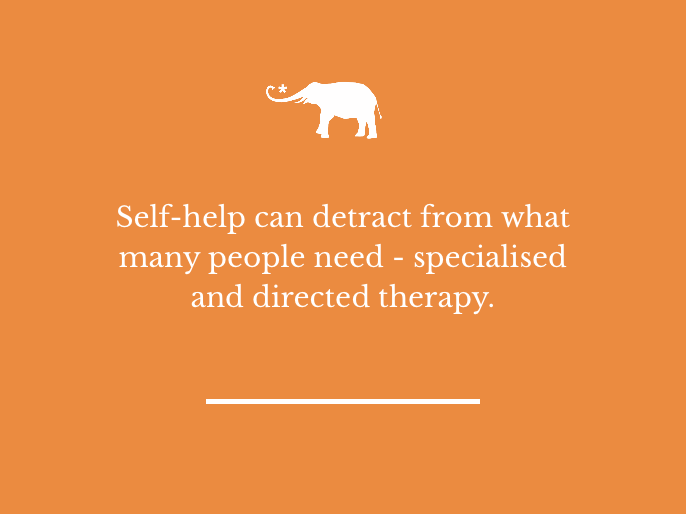Self-help advice is often developed by people who have success and happiness. They are enthusiastic about sharing some of their tools and strategies with others who haven’t found that same level of success or happiness.
One in two people experience a mental illness at some time in their lives. This means that for many people there are underlying challenges which prevent them from making lasting changes without specialised therapy.
People who have mental health problems or who have experienced trauma in childhood may not be able to use ‘simple’ tools and strategies like others. For some people their brains process information differently – making it hard to plan, hard to remember details, and easy to get overwhelmed. Some people have inbuilt beliefs about themselves and the world which can inhibit connection and success. Some have unbearable feelings of fear, loneliness, and emptiness which they protect themselves from by using unhealthy behaviours such as addictions to substances, shopping, exercise, work, sex, food, self harm and social isolation.
The message self help often sends is ‘it worked for me so it will work for you too’. However for many people self help tools and advice are like taking a pain killer to help with the headache caused by a brain tumour. While they may help in the short term the underlying problem is still present.
The problem is that when a relatively simple tool doesn’t work or the changes aren’t sustainable, people can feel like they have failed. Often they will try a different self help strategy with the same result – failing again. Over time this can create a sense of overall hopelessness.
Self help needs to be delivered with awareness. What is seemingly simple and effective for one person may not be for others. It should also be delivered with caution. The abundance of self help out there can detract from what is really needed for many people – specialised and directed therapy.












Read 0 comments and reply